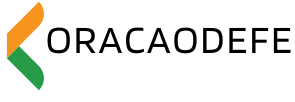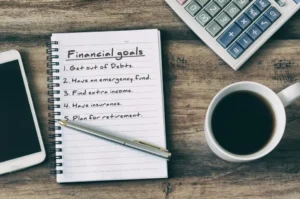It’s harder than ever to keep track of money these days. It can be hard to keep track of everything when you have bills, savings goals, debts, and changing costs. Thanks to technology, managing personal finances has become easier. For example, mobile apps can help people take charge of their money. There is an app for that can help you with spending, saving, keeping track of your investments, or making plans for the future regarding your money.
These apps give you real-time information, efficiency, and clarity in a world where time is short and smart financial choices need to be made. This article talks about the best personal finance apps that can help you stick to your plans, feel better about your money, and improve your long-term financial health.
Why apps for managing your money are important
A lot of people and families are anxious because they are worried about money. When there isn’t a system in place, it’s easy to lose track of spending, deal with regular bills, and plan for goals like paying off debt or buying a house. Personal finance apps make things easier by connecting all of your accounts and giving you a full picture of your money in one place.
NerdWallet did a study in 2024 and found that more than two-thirds of app users say they feel more in charge of their money now that they use a planning or tracking tool. Apps help people figure out bad habits, track their progress, and get alerts that help them avoid missing payments or going overdrawn. To put it simply, these tools are like having a personal financial advisor in your pocket, ready to help you at any time.
Mint: A Classic You Can Trust for Full Budgeting
Mint, which was made by Intuit, has stayed a well-known name in personal banking for a good reason. It links to your bank and credit card accounts so that spending is tracked and organized immediately. This takes the guessing out of it and makes it easy to see where your monthly money goes.
Mint also lets you make a budget that fits your needs and keep an eye on your credit score for free. Its screen is easy to understand and use, which makes it a good choice for newbies who want a full picture of their finances. When you’re trying to get out of debt or start saving more, Mint is a good place to start.
You Need A Budget (YNAB): The Power of Planning How to Spend Your Money
YNAB is not just a planning app; it’s a way of life. YNAB teaches you to give every dollar you earn a reason instead of just keeping track of what you spend. One way to make sure that every dollar goes toward a goal is to use zero-based planning. This can be for rent, food, or saving for the future.
Even though YNAB costs money to subscribe to, many users say that the cost is worth it because it helps them stop spending money they don’t need to and make better financial decisions. It’s perfect for people who want to get out of debt, save money, or get a clear picture of their cash flow. The app also has learning tools to help users on their way to better money management.
PocketGuard: A Way to Stop Spending Too Much
PocketGuard is made to help people who often spend more than they have. After taking into account bills, goals, and needs, this app figures out how much extra money you really have. It tells you how much you can “safely spend” without putting your finances at risk.
By connecting your bank accounts, PocketGuard can see how you spend your money and help you find subscriptions or costs you may want to get rid of. It’s especially helpful for people who have trouble resisting impulse buys and need a visual cue to help them make choices every day.
Personal Capital (now Empower) is a tool that lets you spend and invest at the same time.
Empower, which used to be called Personal Capital, helps you make budgets and spend your money at the same time. It’s one of the few apps that can keep track of not only your spending but also your investments, savings accounts, and total net worth.
Its financial tools let users look at how assets are allocated, keep an eye on account fees, and guess when they will be ready for retirement. Empower does offer paid financial advice, but its basic tools are free and powerful enough for anyone who wants to learn more about managing their money for the long term.
Goodbudget is for people who like envelope budgeting.
With Goodbudget, you can use an envelope instead of the old-fashioned paper way. Users make virtual boxes for things like rent, food, and fun, and then they put money into each one by hand. When the bag is empty, no more money can be spent.
This method is great for people who like to be very active in the planning process because it encourages discipline and awareness. It’s also great for couples because it syncs across devices and makes it easy to talk about costs that are shared.
Simplifi by Quicken: Straightforward, up-to-date, and goal-oriented
The design of Simplifi by Quicken is clean and modern, and it focuses on helping you set goals and form good habits. Spending plans that can be changed, real-time transaction tracking, and useful results help users keep track of both short-term and long-term goals.
Simplifi lets users keep track of their accounts and regular bills and set personalized spending goals. The layout is meant to be simple and clear, making it great for busy workers or people who care about how things look as much as how they work.
How to Pick the Right App for You
There are a lot of apps out there, so choosing the right one depends on your goals and how you handle your money. Mint could be the best choice if you need a strong and cost-free tool. If you want to change how you handle your money and don’t mind paying a monthly fee, YNAB might be for you. People who want to avoid overspending can use PocketGuard’s real-time comments to help them decide how much to spend.
The wealth-tracking tools in Empower may be better for investors and people saving for retirement. On the other hand, the human envelope method in Goodbudget may be better for couples or people who like to budget by hand. Simplifi gives people who want to keep track of their goals in more depth a more current and tailored option.
Comparison of Top Personal Finance Apps
| App Name | Ideal For | Free Version Available | Key Strength |
|---|---|---|---|
| Mint | Beginners & all-in-one tracking | Yes | Budgeting, credit score, net worth tracking |
| YNAB | Intentional budgeters | No (free trial offered) | Zero-based budgeting, behavior change |
| PocketGuard | Overspending control | Yes | “Safe to spend” feature, alerts |
| Empower | Investment-focused users | Yes | Wealth, retirement, and investment tracking |
| Goodbudget | Couples or hands-on users | Yes | Manual envelope budgeting |
| Simplifi | Goal-focused planners | No (low-cost) | Clean UI, customized savings & spending plans |
FAQs About Personal Finance Apps
Are personal finance apps secure?
Yes, most top apps use bank-level encryption and two-factor authentication to protect your data. Reputable apps do not store your login credentials and offer read-only access to your financial accounts.
Can I use more than one finance app at a time?
You can use multiple apps if they serve different purposes. For example, some users might use Mint for expense tracking and Empower for investment monitoring. However, sticking to one reliable app may reduce confusion and simplify management.
What’s the best app for beginners?
Mint is generally considered the best free app for beginners. It offers an all-in-one dashboard that tracks spending, budgets, bills, and credit scores with minimal setup required.
Do finance apps really help with saving money?
Yes, apps that help you budget, reduce unnecessary expenses, and set saving goals can lead to improved financial habits and significant savings over time.
Conclusion: Stay on Track With the Right Digital Tool
A strong financial foundation starts with awareness and discipline. Personal finance apps empower you to monitor your money in real time, stay aligned with your goals, and make informed decisions. Whether you’re trying to cut back on spending, save for the future, or manage investments, there’s an app that fits your needs.
By selecting a tool that resonates with your lifestyle, you gain a financial partner that works with you daily. Start by trying one or two apps that match your goals. With consistent use and a proactive mindset, you’ll not only stay on track—you’ll move forward with confidence and control.
References
-
NerdWallet. (2024). Best Budgeting and Personal Finance Apps. https://www.nerdwallet.com
-
Consumer Financial Protection Bureau. Managing Your Finances Tools. https://www.consumerfinance.gov
-
Forbes Advisor. Best Budgeting Apps of 2024. https://www.forbes.com/advisor




